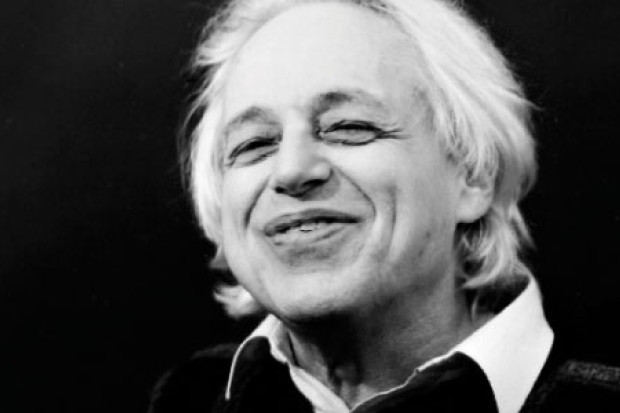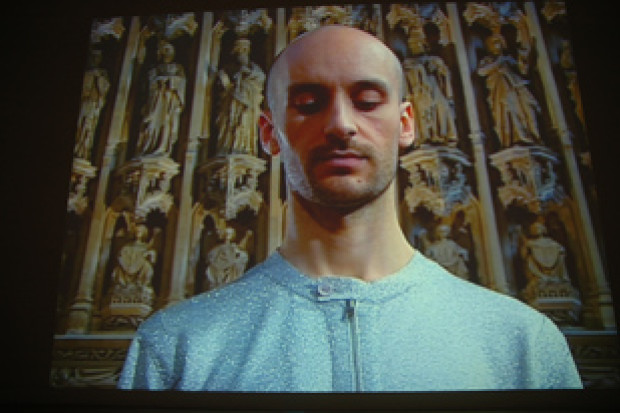Receiving Music
Concert
The Young Composers’ Collective
6 new works for piano
David Adams
Goethe Institute, Thursday Dec 2nd
CD
Music from Northern Ireland
Lontano / Odaline Martinez
Lorelt LNT117
Transmissions
Most musical expression reaches the listener either as a CD or a concert. (Radio, though important, is secondary to these categories, since the radio station relies totally on these two primary sources.) Apart from theatrical and ceremonial presentations that incorporate music, that is everything.
Yet rarely is the gulf between these two forms of transmission discussed. There are obvious issues centred on the concept that the CD is a chance to remove as many textual errors as possible, and thus present the cleanest, though not necessarily the most truthful, account. (Already the loaded terms abound!) But the really interesting differences are bigger than that. From the listener’s point of view, a CD offers the luxury of not listening. If it’s too much trouble to pay attention, or if those dishes need washing, never mind – because you can put it back on some other time. Too much of this kind of non-listening can seriously affect the ability to cope with live music. In fact, the level of constant attention that live music requires is hugely threatened by the ubiquity of recordings.
As well as turning music into a commodity, the CD also objectifies music. You might even say that a CD relates to music just as a video relates to reality. Yet when people ask ‘have you heard any of X’s music?’ the answer is not ‘no, only a recording of it’, but ‘yes, I have a CD of it.’
One of the many other essential differences between live and recorded music is the fact that the music in the live situation doesn’t exist until the end of the piece, and, since it’s over, it doesn’t exist then either. The magic of live music lies here, since, after all, if the performers lose concentration it can all go horribly wrong. With a CD we are in total control, by comparison. The degree of sense of security, with all the psychological resonance that that implies, is radically different in the two listening environments. Furthermore, we may not intend to jump up and disrupt the flow of the music at a concert, but the constant existence of that possibility makes us part of the performing group, in a bizarrely extended sense. So a major aspect of the difference is that in the live music situation we are really part of the music. With a recording we are resolutely outside of it.
If there are such ontological differences between these ways of receiving music, then it follows that a particular piece may achieve its intended effect better through one of the two channels. It has certainly struck me that certain pieces by Xenakis, for example, sound much flatter in recording than live. This could be because his dynamic range is sometimes so extreme that sound reproduction doesn’t do it justice, but it could also be because his scores are so difficult to perform that live realisations always have a shared sense of ordeal by the end.
This all has to be borne in mind when throwing reviews of CDs and concerts together, and since that is what this space has done since the outset, mention of it was long overdue! For any music review, the reader should consider the possibility that the piece might work better heard the other way.
New names
Thursday 2nd December saw the first concert of the Young Composers’ Collective. The YCC is a group of young composers – some very young – who want to get their music in front of an audience. This event showed that composers can occasionally co-operate effectively and get things done. In fact, it was very exciting to witness what may be the birth of a long series of concerts of this type, concentrating solely on the music of composers born since c. 1970. As administrator for the AIC (Association of Irish Composers), the IMRO/Mostly Modern Young Irish Composers’ Competition and the Irish Composition Summer School, I was amazed to encounter what were, to me, four totally new names. The number of young composers around just keeps rising.
With composers ranging in age from 19 years to the early 30s, this selection was undoubtedly representative of the YCC, and as might be anticipated, the pieces showed a striking heterogeneity of mood and style, although I would have to temper that opinion with the view that, overall, conservative tendencies dominated.
It is interesting to note that the YCC makes it known that it has ‘no artistic screening process’. In fact the six pieces in this programme were chosen by lottery from among their available piano scores. There is something very discomfiting about avoiding the concept of the ‘programme’, and constraining yourself from presenting your best offerings to a paying public, but I (of all people) understand the logistical and political imperative behind that decision.
This concert began with Close Your Fields by Neil O’Connor, the only piece in the programme to include an electro-acoustic part. This element was a nostalgia-inducing combination of modal background music plus white noise. The more active and contrasting solo for piano occasionally struggled to emerge from this miasma of less ear-catching material. Despite a lot of surface activity, the over-all effect was static, even block-like, which may be the whole point.
Next came Karen Power’s Like Piglets at a Market, which made for a radical contrast to the first piece. Here there was, if anything, an excess of structural variety. Much of the piece played with expectations to produce excitement, and the instrument was used to the full. By the end, however, there was a sense of prolixity. Nonetheless, a composer to look out for in the future.
Simon O’Connor excelled in the removal of material. His Untitled was well titled! A tiny jewel of material was set in yards of nothingness, superbly aerated by David Adams’ advocacy – very satisfying coming after the richness of Like Piglets – it put me in mind of Beginner’s Mind by Walter Zimmerman.
The extreme tonal and gestural conservativeness of Tomás Elnaes’ Mermorias Dolorosas I found depressing. There are ways of re-contextualising tonal harmonies to produce something relevant, but this was not an example of that. The piece was strongly thematic and included some attractive folk melody, but the addition of banal accompaniment was sometimes intrusive in this context. For all that, this composer displayed a strong instinct for formal layout.
Meetings With Nigel by Aengus Ó Maoláin returned us yet again to quasi-modal thematic territory. Showing glimpses of originality in how unpredictability can be wrung out of changing the periodicity of repetitive elements, nonetheless this was an extremely loosely composed piece. Parodying jazz, folk and classical music as it went along, the piece seemed to want to do a lot but in the end just lasted a very long time, which is not the same thing.
The last piece was for prepared piano: Another Winter by Cathy Burke. Minimal and economical in gesture, the fact that the piano was prepared lent the material some supercharged decorativeness. The piece was formally satisfying and to the point; this is another composer I want to hear again.
These six pieces were all served very well by David Adams, who, despite working on a quite out-of-tune piano, breathed real life into each piece.
Lontano
Lontano is an 11-piece ensemble that for 28 years has been active in the promotion of contemporary music, particularly Latin American and women composers. This CD was released with assistance from the Arts Council of Northern Ireland, and features six composers from Northern Ireland.
‘Anthology’ CDs of this kind, where the aim is to represent a country or region, often suffer from stylistic incoherence. Worse still they sometimes, for reasons of political expediency, include a couple of poor pieces. Needless to say this can mean that the overall message for the country – ‘we’re as good as the next place’ – gets inverted into: ‘we’re not, and we don’t even know it’. So I would say that selection for this kind of CD is fraught, to say the least. On this CD, while there is variation in style, compositional quality and performance/
technical quality, there are thankfully no clangers!
The first track, Mutable Sea by Stephen Gardner, makes for a gentle introduction for any listener who might be in any way squeamish about contemporary music. Interestingly this is counterbalanced at the end of the CD where Michael Alcorn’s Off the Wall is the piece that might represent the popular idea of ‘cutting edge’. The Gardner piece shows once again the strengths of this composer: he never overstays his welcome, but can nevertheless see an idea through to its proper conclusion. Michael Alcorn’s work succeeds in much the same way: although harmonically hard-edged, it is highly coherent.
Ed Bennett’s Lost and Found is a five-movement duo for violin and piano, and while not ‘stretching the boundaries’ as much as other works by this composer, is a thoroughly convincing piece for this difficult medium.
Kevin O’Connell’s Piano Trio is a four movement piece which makes a point of engaging with old forms. The movements are: Fuga, Scherzo, Adagio and Passacaille. But there is nothing academic or dusty here, rather O’Connell is developing these forms, experimenting with, and refining, the hyper-counterpoint that Nancarrow and Carter introduced to the world.
Overall production qualities are very high, with the exception of the recording of Barcode 2, a piece for flute and clarinet by Simon Mawhinney, where the flute lacks presence. As a performance, this track lacks a sense of musical flow. The piece, and this talented composer, could be better represented.
Elaine Agnew’s Statues is a 12-minute movement for violin and piano, but its structure is a series of episodes. Each of these is well-conceived and constructed, but it is hard to hear how or why they share the same piece sometimes, particularly when the music rolls into areas which sound exactly like Gerald Barry.
The cost of CD production continues to fall into the reach of more and more musicians, so perhaps soon I will have the chance to assess some YCC music from the cooler perspective of the kitchen sink.
Published on 1 January 2005
John McLachlan is a composer and member of Aosdána. www.johnmclachlan.org












